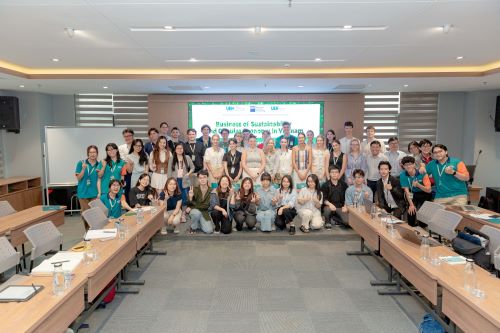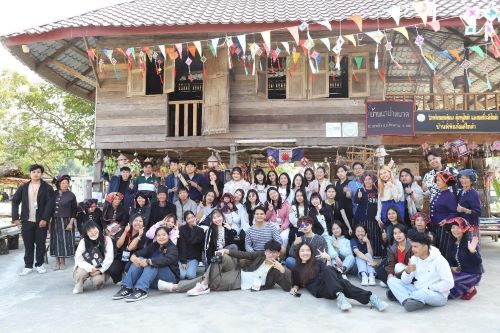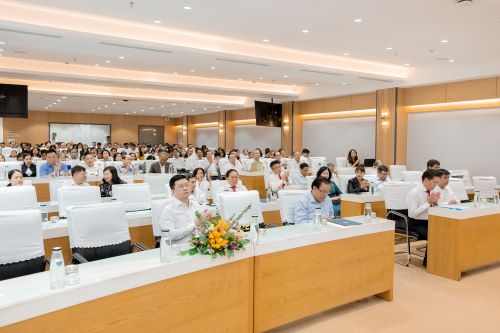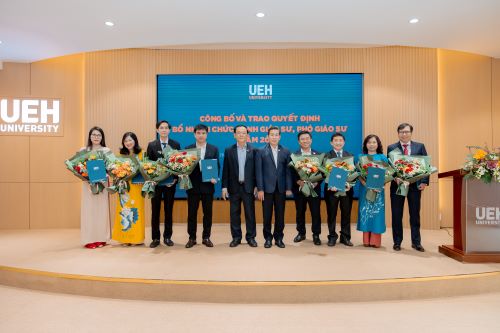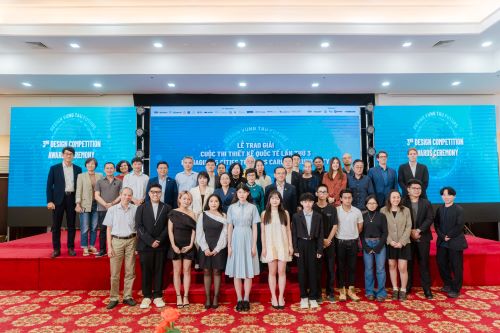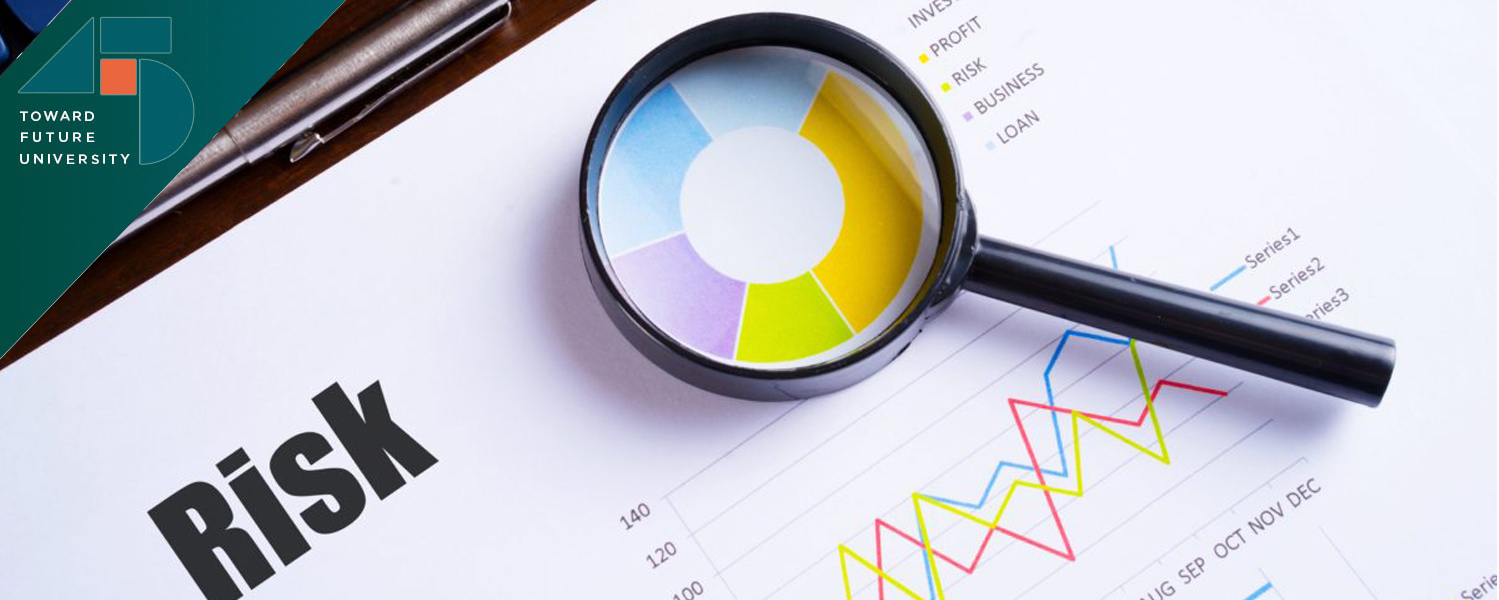
JST June seminar with the theme: “The contagion of risk aversion: Evidence from financial markets and controlled experiments”
The June 2021 JST seminar is the next activity in the series of Symposiums "Economics and Business: Agendas for the Uncertain World". The seminar was held on June 8, 2021, by the Journal of Asian Business and Economic Research (JABES) - University of Economics Ho Chi Minh City. Ho Chi Minh (UEH) organization. Here, domestic and international researchers and scientists listened to guest speaker Dr. Nancy R. Xu present and discussed together with the topic "The spread of risk aversion psychology": Evidence from financial markets and controlled experiments.
In order to orientate relevant and useful research topics in the context of global instability, the Journal of Asian Business and Economic Research (JABES) maintains a monthly series of international scientific conferences. (JABES Seminar Talks – JST) related to economics and business. On June 8, 2021, the JST 2021 June seminar was held with the presentation of the guest speaker, Dr. Nancy R. Xu and the participation of a large community of researchers and scientists from 20 countries (including Vietnam, UK, Germany, USA, Japan, China, India, United Kingdom, United Arab Emirates, Australia, Brunei, Indonesia, Malaysia, Taiwan, Philippines, Cambodia, Bangladesh, Zimbabwe, Pakistan, Bulgaria, Sri Lanka) via the Zoom platform.
Dr. Nancy R. Xu has research papers published in leading journals such as the Journal of Financial Economics, Management Science, especially with the index “US Risk Aversion Index”. The studies of Dr. Nancy R. Xu focuses on identifying the drivers of risk aversion (the cost of risk) and economic uncertainties (the amount of risk incurred) and their impact on the domestic and international assets markets. Her recent work (at Management Science) was to develop a time-varying US risk aversion index filtered from a range of risky US asset prices.
At the talk show, Dr. Nancy Xu presented her research and Prof. Xing Huang (Boston University, USA) in the research paper “Risk Aversion Propagation: Evidence from Financial Markets and Controlled Experiments” – an analysis of why localized risk aversion may have spread from the United States. Period to other developed economies. This is a hot topic in sentiment analysis that examines how risk appetite changes over time. Many previous studies have analyzed risk appetite in the national context, but few have examined risk appetite in the international context. Dr. Nancy R. Xu and colleagues conducted Controlled Experiments and mined daily financial market news data from 2000 to 2017. Also, the study used variance—risk premium as an empirical measure of daily risk aversion. The risk premium variance is defined as the price buyers are willing to pay to hedge against futures market volatility. In this study, Dr. Nancy Xu considers whether it is possible to value the risk premium as an international proxy for a country's risk aversion because it also speaks to a country's uncertainty…
Research results show that the group of Americans with high-risk aversion has more impact on the world than those with low-risk aversion, which makes the phenomenon of the disproportionate spread of the mind of risk aversion in the United States
In the experimental study, foreigners who face the shock of US financial bankruptcy due to asymmetry have higher negative emotions and higher risk aversion than Americans. A special feature of this study is that Dr. Nancy R. Xu and colleagues used the Priming Method to analyze risk aversion spread.
The extrinsic nature of adverse shocks can be more emotionally variable than positive shocks, which leads to a disproportionate spread of risk aversion. Research shows that emotions are involved in 20% of this asymmetry.
The analysis of the spread of risk aversion shows the importance of human psychology in making financial decisions, thereby affecting the economy.
At the end of the seminar, many participating researchers posed many questions and participated in discussions with the speakers around the issue of shocks for investors, and news shocks only happen to small individual investors. However, large investors, are only interested in the fluctuation of numbers through data on the computer, as well as the execution of securities trading through the computer. Dr. Nancy R. Xu said that all investors buy, sell and invest in securities after reviewing the data. However, news also plays a significant role in investment decisions, as news about the COVID-19 pandemic has had a huge impact on financial markets around the world.
Some pictures from the talk:
.jpg)
MSc. Huynh Luu Duc Toan, on behalf of JABES, welcomes speaker Dr. Nancy R. Xu participates in the June JST Talks
.jpg)
Dr. Nancy R. Xu sends greetings to researchers and scientists attending the June 2021 JST Talks
![]()
.jpg)
Dr. Nancy R. Xu presents the main points of the study in turn
.jpg)
GS. Nguyen Trong Hoai thanked Dr. Nancy R. Xu and researchers and scientists enthusiastically participated in the June JST Talk
.jpg)
The organizers and researchers and scientists took pictures with Dr. Nancy R. Xu
- JABES Facebook:
- JABES Website: //www.jabes.sbdweb.com/
- JABES on Emerald Group Publishing:
- ACBES Website: //acbes.sbdweb.com/
- JABES Youtube:
News, photos: JABES
.jpg)

